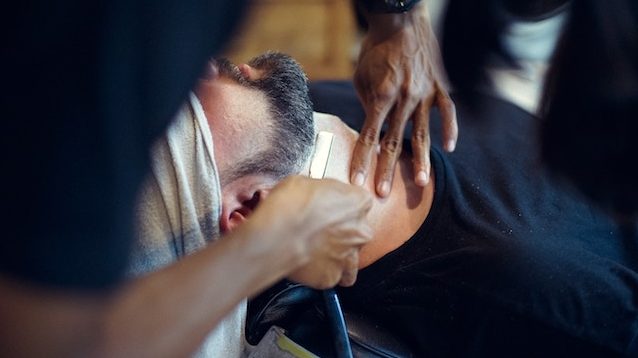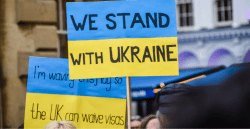The police officer behind the UK’s first prosecution for child modern slavery is warning that some traditional Turkish barber shops may be using slave labor.
Detective inspector Charlotte Tucker said, “There are barber shops setting up now where people live above the shop and customers pay in cash. Owners are looking to exploit workers and make money.”
Related Campaign: Support for all UK victims of modern slavery.
Other businesses known to be tied to modern slavery in the UK include nail bars, car washes, clothing factories, cannabis farms, and the cleaning industry. Tucker urged men who frequent these barber shops to look for signs of exploitation.
The Telegraph reports:
One indication of malpractice, she said, is “If you’re in a barbers and, when another customer arrives, a tired or disheveled barber comes downstairs to start working on them.”
Other warning signs include, the business only takes cash payments, staff appear to live on the premises, look tired and are distant from management. The number of people who work at a barbers can also be a cause for concern.
DI Tucker’s two-year investigation into the forced labour of Vietnamese teenagers at Deluxe Nails in Bath and Gorgeous Nails in Burton-on-Trent resulted in the conviction of three people, Thu Huong Nguyen (known as Jenny), Viet Hoang Nguyen (Ken) and Giang Huong Tran (Susan), earlier this year.
The Home Office estimates as many as 13,000 people in the UK could be affected by modern slavery. Separate research from Freedom United, which includes new forms of slavery such as child drug-runners, suggests this number could, in fact, be as high as 136,000.
DI Tucker added that victims may not always see themselves as victims, meaning the public and the police may be the first ones to notice signs of abuse.
“They’re not locked away or in chains, but are hidden in plain sight,” said DI Tucker. “It’s incumbent on everyone using those services to try and spot the signs of modern slavery.
“This is a pernicious, despicable crime designed to make money out of someone’s vulnerability. We need the public’s help.”







Freedom United is interested in hearing from our community and welcomes relevant, informed comments, advice, and insights that advance the conversation around our campaigns and advocacy. We value inclusivity and respect within our community. To be approved, your comments should be civil.